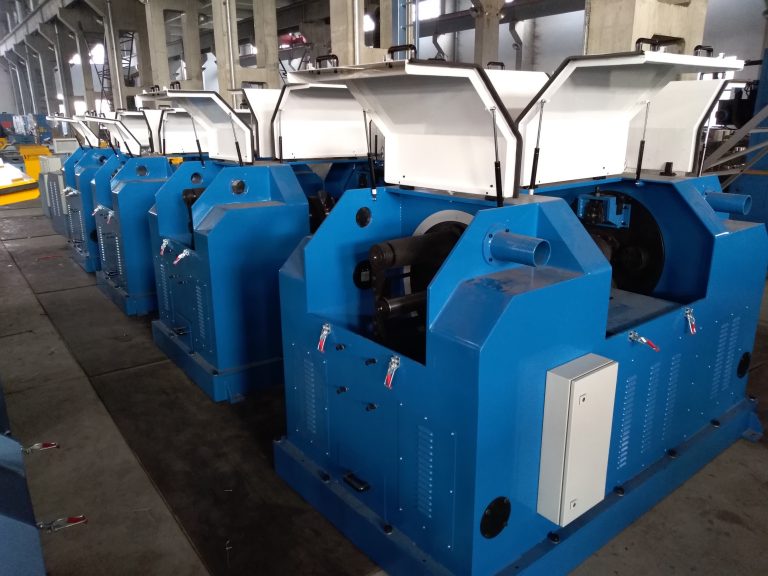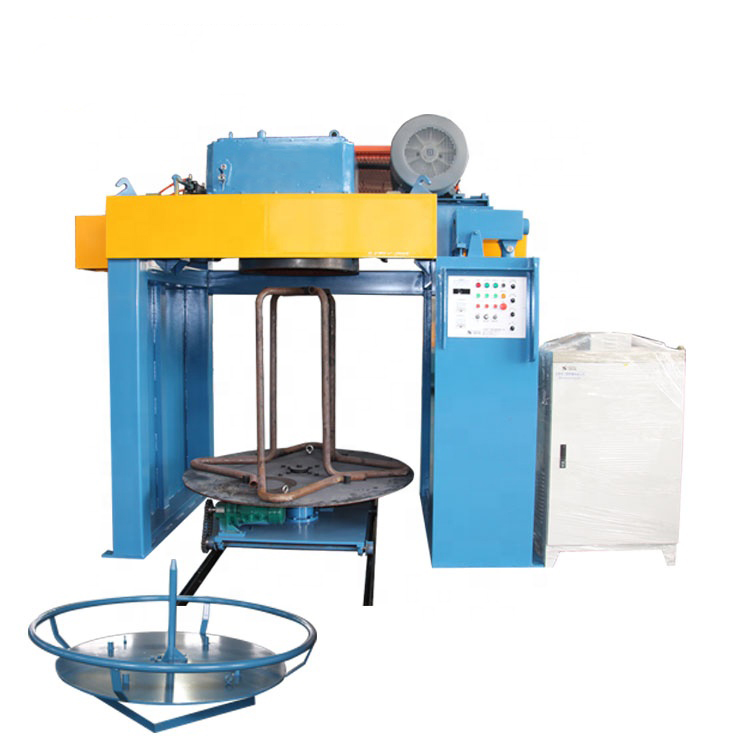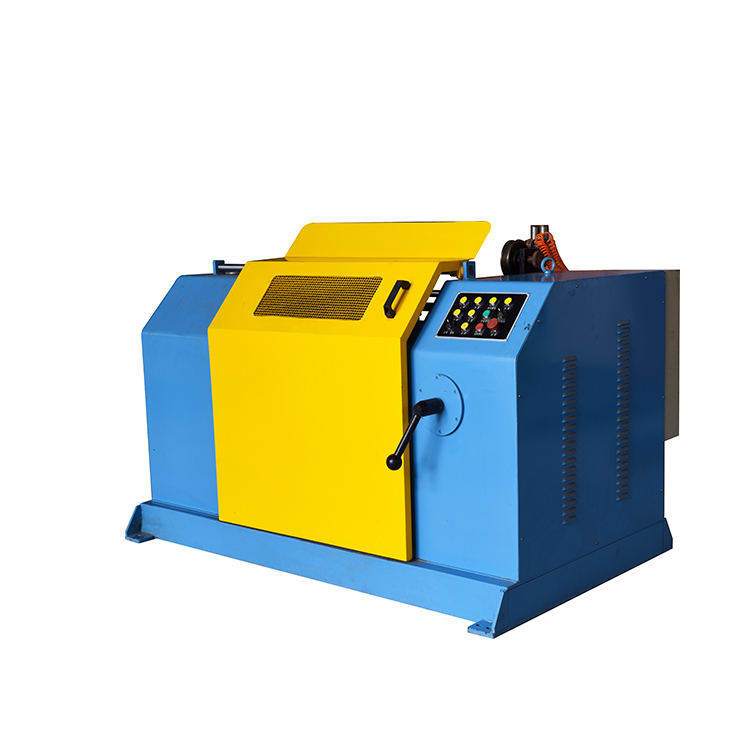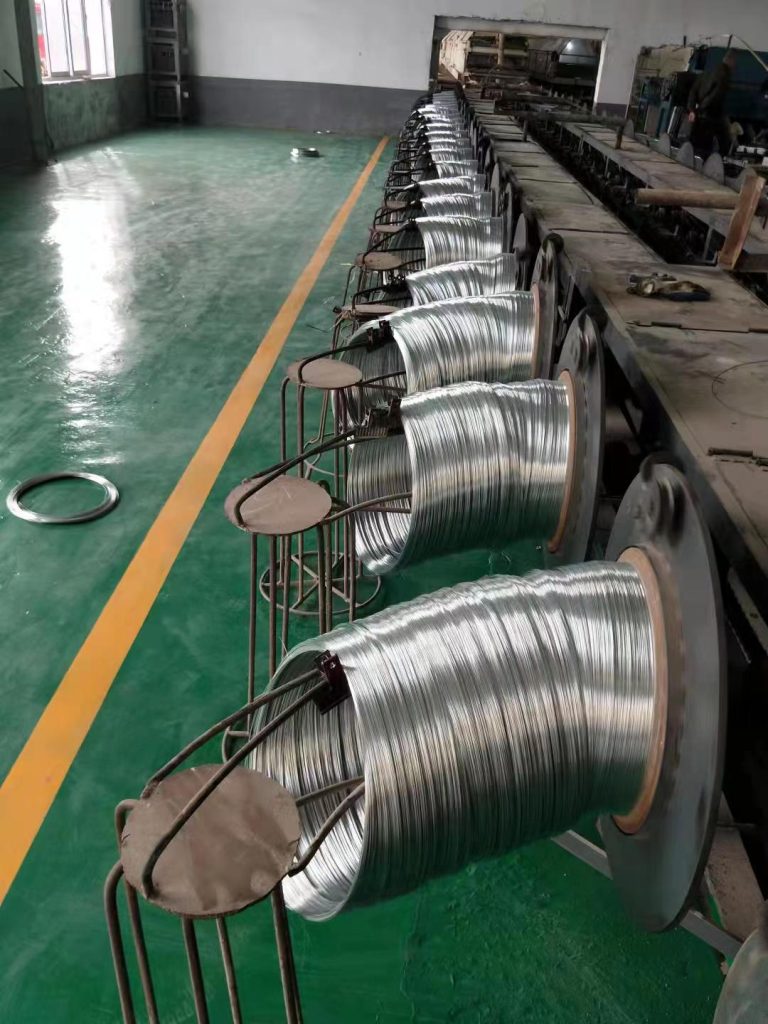Step-by-Step Guide to Setting Up a Zinc Copper Wire Production Line
Setting up a Zinc Wire Production Line can be a complex process that requires careful planning and attention to detail. In this step-by-step guide, we will walk you through the key considerations and tasks involved in establishing a successful production line.
The first step in setting up a zinc copper wire production line is to conduct a thorough market analysis. This will help you understand the demand for zinc copper wire in your target market, as well as the competition you will face. By identifying potential customers and competitors, you can develop a strategy to differentiate your product and attract customers.

Once you have a clear understanding of the market, the next step is to secure a suitable location for your production facility. The location should be easily accessible to suppliers and customers, and should have adequate space for the production equipment and storage of raw materials and finished products. Additionally, you will need to ensure that the facility meets all regulatory requirements and has access to utilities such as electricity and water.
With a location secured, the next step is to acquire the necessary equipment for the production line. This will include machinery for drawing and annealing the wire, as well as equipment for coating and packaging the finished product. It is important to carefully research and select high-quality equipment that meets your production needs and budget.
Once you have acquired the equipment, the next step is to hire and train staff for the production line. This will include operators for the machinery, as well as quality control and maintenance personnel. Training should be thorough and ongoing to ensure that all staff are proficient in their roles and can contribute to the success of the production line.
With the equipment and staff in place, the next step is to set up the production process. This will involve establishing workflows for each stage of production, from drawing the wire to coating and packaging the finished product. It is important to optimize the production process to maximize efficiency and minimize waste, while maintaining high quality standards.
As the production line is established, it is important to monitor and evaluate its performance regularly. This will involve tracking key performance indicators such as production output, quality control metrics, and equipment downtime. By analyzing this data, you can identify areas for improvement and make adjustments to optimize the production process.
In conclusion, setting up a zinc copper wire production line requires careful planning and attention to detail. By conducting a thorough market analysis, securing a suitable location, acquiring the necessary equipment, hiring and training staff, and optimizing the production process, you can establish a successful production line that meets the demand for zinc copper wire in your target market. With dedication and perseverance, you can build a profitable business that contributes to the growth of the industry.
Common Quality Control Measures for Zinc Copper Wire Production Line
Pure Zinc wire drawing machine are essential in the manufacturing of various electrical components and products. These production lines are responsible for producing high-quality zinc copper wires that are used in a wide range of applications, from electrical wiring to telecommunications. To ensure the quality and reliability of the zinc copper wires produced, it is crucial to implement common quality control measures throughout the production process.

One of the key quality control measures in a zinc copper wire production line is the inspection of raw materials. Before the production process begins, it is essential to thoroughly inspect the quality of the zinc and copper materials that will be used. This includes checking for any impurities or defects that could affect the final product. By ensuring the quality of the raw materials, manufacturers can prevent issues such as poor conductivity or corrosion in the finished zinc copper wires.
Once the raw materials have been inspected and approved, the next step in the quality control process is monitoring the production process itself. This includes closely monitoring the temperature, pressure, and speed of the machines used in the production line. Any deviations from the set parameters could result in defects in the zinc copper wires, so it is crucial to maintain strict control over the production process.
In addition to monitoring the production process, regular testing of the zinc copper wires is also essential for quality control. This can include conducting tests for conductivity, tensile strength, and resistance to corrosion. By testing the finished zinc copper wires, manufacturers can ensure that they meet the required specifications and standards for their intended use.
Another important quality control measure in a zinc copper wire production line is the inspection of the finished products. This involves visually inspecting the zinc copper wires for any defects, such as cracks, breaks, or irregularities in the surface. By conducting thorough inspections of the finished products, manufacturers can identify and address any issues before the zinc copper wires are shipped to customers.

In addition to these common quality control measures, manufacturers can also implement additional measures to further improve the quality of their zinc copper wires. This can include implementing a quality management system, such as ISO 9001, to ensure that all processes are carried out in a consistent and controlled manner. By following established quality management practices, manufacturers can continuously improve the quality of their zinc copper wires and meet the expectations of their customers.
Overall, implementing common quality control measures in a zinc copper wire production line is essential for ensuring the quality and reliability of the finished products. By closely monitoring the raw materials, production process, and finished products, manufacturers can identify and address any issues that could affect the quality of the zinc copper wires. By following established quality management practices, manufacturers can continuously improve their processes and deliver high-quality zinc copper wires to their customers.
Benefits of Using Zinc Copper Wire in Industrial Applications
Zinc copper wire is a popular choice for industrial applications due to its numerous benefits. The production process of zinc copper wire involves combining zinc and copper to create a durable and versatile material that is ideal for a wide range of uses. In this article, we will explore the benefits of using zinc copper wire in industrial applications.
One of the key advantages of zinc copper wire is its high conductivity. Copper is known for its excellent electrical conductivity, and when combined with zinc, the resulting wire is able to efficiently transmit electricity. This makes zinc copper wire an ideal choice for applications where a reliable and efficient electrical connection is essential.
In addition to its high conductivity, zinc copper wire is also highly resistant to corrosion. The zinc coating on the wire helps to protect the copper core from environmental factors such as moisture and chemicals, ensuring that the wire remains in good condition for an extended period of time. This corrosion resistance makes zinc copper wire a durable and long-lasting option for industrial applications.

Another benefit of using zinc copper wire is its flexibility. The wire can be easily bent and shaped to fit a variety of different applications, making it a versatile choice for a wide range of projects. Whether you need to run wire through tight spaces or around corners, zinc copper wire can be easily manipulated to meet your specific needs.
Furthermore, zinc copper wire is also known for its high tensile strength. This means that the wire is able to withstand a significant amount of tension without breaking or deforming. This makes zinc copper wire a reliable choice for applications where the wire may be subject to high levels of stress or strain.
In addition to its physical properties, zinc copper wire is also a cost-effective option for industrial applications. The production process for zinc copper wire is relatively simple and efficient, which helps to keep costs down. This makes zinc copper wire an affordable choice for businesses looking to save money on their wiring needs.
Overall, zinc copper wire offers a wide range of benefits for industrial applications. From its high conductivity and corrosion resistance to its flexibility and cost-effectiveness, zinc copper wire is a versatile and reliable option for a variety of projects. Whether you need to transmit electricity, protect against corrosion, or withstand high levels of tension, zinc copper wire is a durable and efficient choice for your industrial wiring needs.






